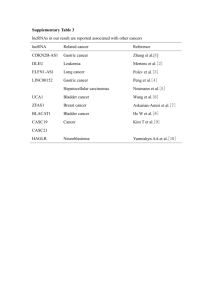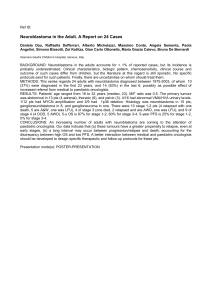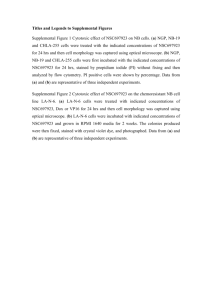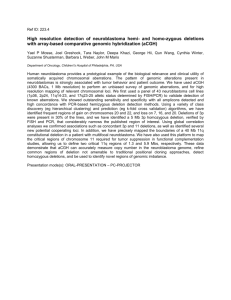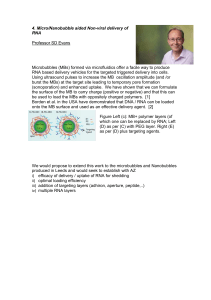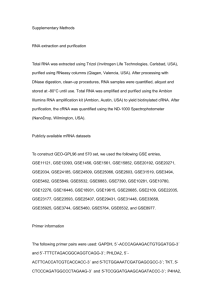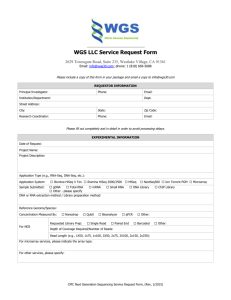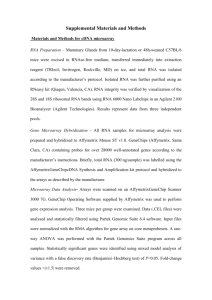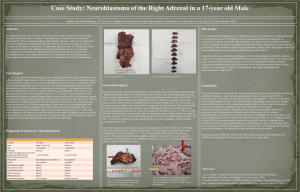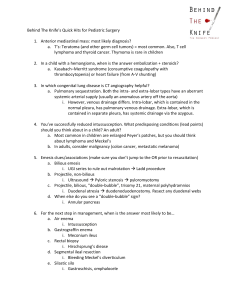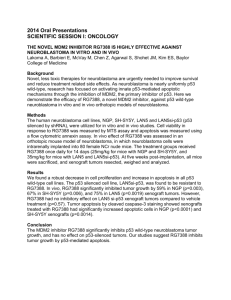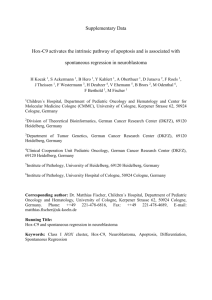tools for comparative gene expression profiling
advertisement
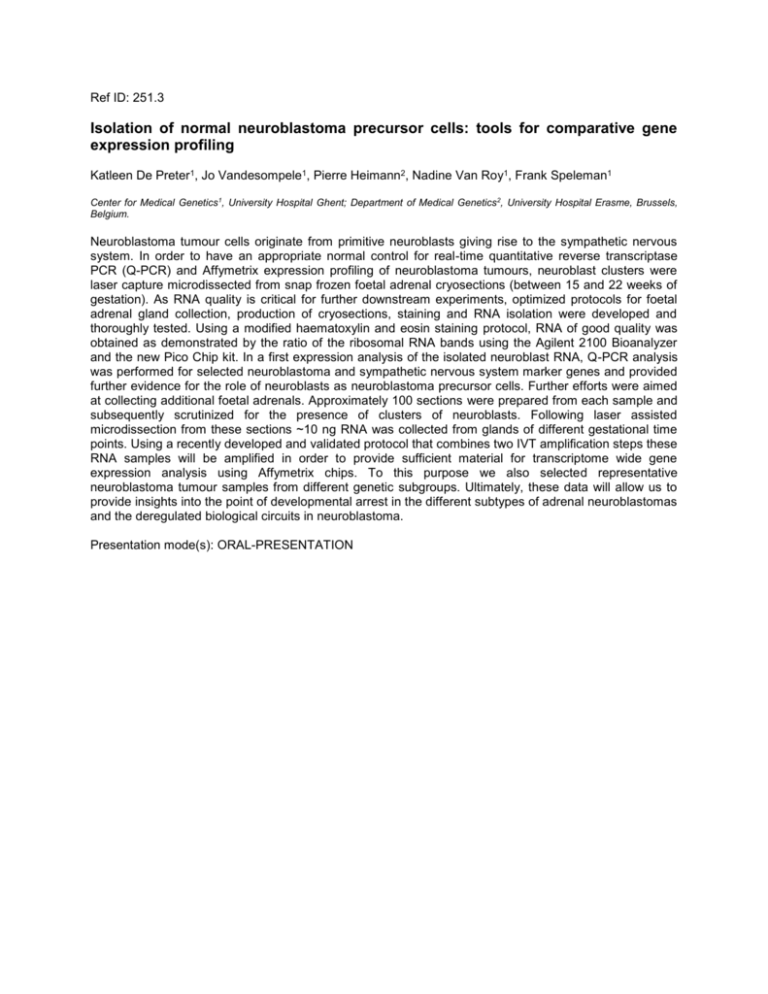
Ref ID: 251.3 Isolation of normal neuroblastoma precursor cells: tools for comparative gene expression profiling Katleen De Preter1, Jo Vandesompele1, Pierre Heimann2, Nadine Van Roy1, Frank Speleman1 Center for Medical Genetics1, University Hospital Ghent; Department of Medical Genetics2, University Hospital Erasme, Brussels, Belgium. Neuroblastoma tumour cells originate from primitive neuroblasts giving rise to the sympathetic nervous system. In order to have an appropriate normal control for real-time quantitative reverse transcriptase PCR (Q-PCR) and Affymetrix expression profiling of neuroblastoma tumours, neuroblast clusters were laser capture microdissected from snap frozen foetal adrenal cryosections (between 15 and 22 weeks of gestation). As RNA quality is critical for further downstream experiments, optimized protocols for foetal adrenal gland collection, production of cryosections, staining and RNA isolation were developed and thoroughly tested. Using a modified haematoxylin and eosin staining protocol, RNA of good quality was obtained as demonstrated by the ratio of the ribosomal RNA bands using the Agilent 2100 Bioanalyzer and the new Pico Chip kit. In a first expression analysis of the isolated neuroblast RNA, Q-PCR analysis was performed for selected neuroblastoma and sympathetic nervous system marker genes and provided further evidence for the role of neuroblasts as neuroblastoma precursor cells. Further efforts were aimed at collecting additional foetal adrenals. Approximately 100 sections were prepared from each sample and subsequently scrutinized for the presence of clusters of neuroblasts. Following laser assisted microdissection from these sections ~10 ng RNA was collected from glands of different gestational time points. Using a recently developed and validated protocol that combines two IVT amplification steps these RNA samples will be amplified in order to provide sufficient material for transcriptome wide gene expression analysis using Affymetrix chips. To this purpose we also selected representative neuroblastoma tumour samples from different genetic subgroups. Ultimately, these data will allow us to provide insights into the point of developmental arrest in the different subtypes of adrenal neuroblastomas and the deregulated biological circuits in neuroblastoma. Presentation mode(s): ORAL-PRESENTATION
